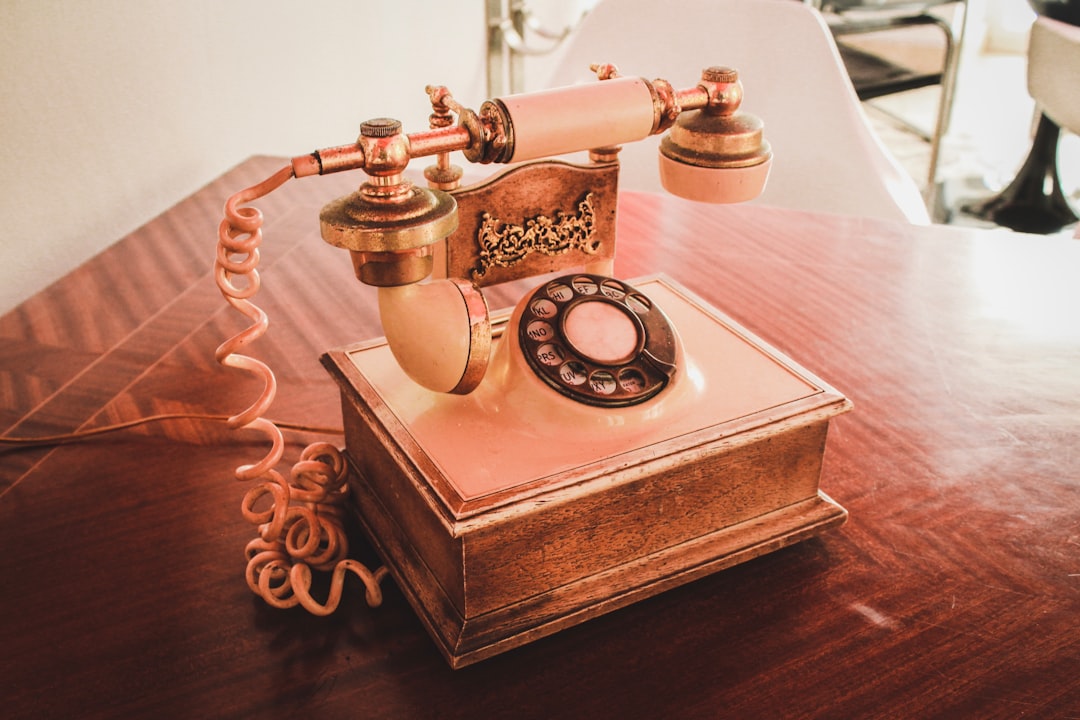In Iowa, telemarketers targeting smartphones through spam calls pose significant risks, from sales scams to identity theft. Legal guidelines exist to protect consumers, but identifying and blocking these calls is crucial. Iowans can protect themselves by registering on the National Do Not Call Registry, using anti-spam apps, and consulting lawyers specializing in consumer protection. Reporting spam calls to local authorities also aids in combating this issue. Educating communities about these risks through lawyer expertise enhances defenses against intrusive telemarketing.
In today’s digital age, Iowa residents are increasingly facing the nuisance and potential risks of spam calls on their phones. This article delves into understanding the growing concern of unsolicited telemarketing calls, exploring legal protections in place and practical steps to identify and protect against them. Learn how to empower your community by spreading awareness about spam risks, involving your lawyer and local authorities, and arming yourself with knowledge to safeguard your smartphone from unwanted intrusions.
Understanding Spam Calls: A Growing Concern in Iowa
In today’s digital age, one persistent threat that has become increasingly prevalent is spam calls. This growing concern affects Iowans daily, with their smartphones ringing off the hook from unwanted telemarketers. Understanding the nature of these spam calls and their risks is essential for every resident to stay protected in an era where phone numbers can be easily purchased and sold on the dark web.
Spam calls often come from call centers looking to sell products or services, but they can also include scams aiming to steal personal information. With advanced technology, these telemarketers have found ways to target specific demographics and even spoof local numbers, making it harder for individuals to identify and block these calls effectively. This is where a lawyer or community educator can play a vital role in raising awareness about spam call risks and empowering Iowans to take control of their communication.
The Role of Telemarketers and Legal Protections
In Iowa, telemarketers play a significant role in reaching potential customers through phone calls, especially on mobile devices like smartphones. However, their activities can sometimes lead to problems, particularly when it comes to spam calls. These unwanted phone calls from unknown numbers are a growing concern for many Iowans, often posing as legitimate businesses or organizations. While telemarketers have legal protections that allow them to conduct business over the phone, these laws also aim to safeguard consumers from deceptive practices and excessive nuisance calls.
Understanding the legal framework is crucial. In Iowa, there are regulations in place to curb spam calls, ensuring that telemarketers respect individuals’ privacy and consent. A lawyer specializing in consumer protection can guide community members on their rights and how to report abusive calls. By being informed about these protections, Iowans can take proactive steps to mitigate the risks associated with phone marketing and ensure their smartphones remain a safe and effective communication tool.
How to Identify and Protect Against Spam Calls on Your Phone
Identifying spam calls on your phone is the first step to protecting yourself and your community in Iowa. Often disguised as legitimate business or personal communications, these unwanted calls can be recognized by suspicious numbers, unknown senders, or pre-recorded messages. A simple way to check if a call is spam is by looking at the caller ID; if it displays an unfamiliar area code or a number you don’t recognize, be cautious. Many telemarketers and scammers use automated systems to make calls en masse, so personalized or specific information in the message should raise flags.
Protecting against these calls involves taking proactive measures. First, consider registering your phone number on the National Do Not Call Registry, which restricts marketing calls. Most smartphones also have built-in call blocking features; enabling these can help filter out spam. Additionally, installing reputable anti-spam apps specifically designed for Android or iOS devices offers another layer of defense. If you’re unsure about a call’s authenticity, don’t hesitate to reach out to your lawyer or local consumer protection agency in Iowa for guidance.
Taking Action: Contacting Your Lawyer and Local Authorities
If you’re experiencing an influx of spam calls on your phone or smartphone, it’s time to take action. The first step is to reach out to your lawyer. They can provide guidance on legal options available to combat telemarketers and protect your rights as a resident of Iowa. Additionally, reporting these nuisance calls to local authorities is crucial. Many states, including Iowa, have laws in place to combat spam calls, and your report could help law enforcement investigate and take action against perpetrators.
Remember, every call stopped contributes to a safer and less disruptive environment for you and your cellphone users in the community. Promptly taking action not only benefits you but also sets an example for others who may be unsure of how to handle spam calls effectively.
Empowering Your Community: Tips for Spread Awareness About Spam Risks
In an era where communication primarily happens over the phone, cellphones, and smartphones, it’s crucial to empower Iowans with knowledge about spam call risks. Start by educating your neighbors and community members on how to identify spam calls using tips from legal experts. A lawyer specializing in telemarketing laws can provide insights into common tactics used by spammers and ways to recognize them.
Encourage everyone to check caller ID and not answer unknown numbers. Teach them about blocking features available on most smartphones to prevent repeated calls from spammers. Additionally, share best practices for managing calls, such as using do-not-call lists and reporting spam attempts to local authorities. This collective effort can significantly enhance the community’s defenses against intrusive and potentially harmful spam calls in Iowa.



